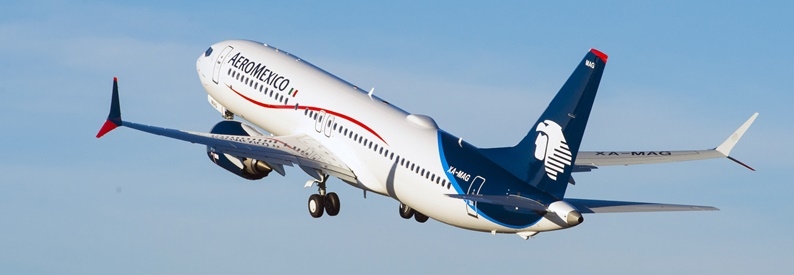Trump Administration Orders Delta and Aeromexico to End Joint Venture

The Trump administration announced late Monday Sep. 15 that it is ordering Delta Air Lines and Aeromexico to unwind their joint venture by Jan. 1 2026, ending a nearly nine-year partnership that allowed the carriers to coordinate schedules, pricing and capacity decisions on U.S.–Mexico flights.
The U.S. Department of Transportation (DOT) had first proposed terminating the joint venture in July as part of a series of actions targeting Mexican aviation policies. In January 2024, the department under President Joe Biden had said it was reviewing the agreement, but Monday’s order formally ends it. Washington has also warned it could take similar action against European countries over airport limitations.
According to the DOT, ending the joint venture is “necessary because of ongoing anticompetitive effects in U.S.–Mexico City markets that provide an unfair advantage to Delta and Aeromexico.” The carriers control about 60% of passenger flights between Mexico City Airport—the fourth-largest international gateway to and from the U.S.—and U.S. destinations.
The DOT clarified it is not requiring Delta to sell its 20% equity stake in Aeromexico and said the carriers retain flexibility to compete independently or reapply for approval if market conditions change.
Delta expressed disappointment over the decision, arguing the move “will cause significant harm to U.S. jobs, communities and consumers traveling between the U.S. and Mexico” and said it is reviewing the order and considering next steps. Aeromexico also criticized the ruling, saying it overlooked the alliance’s benefits for tourism and connectivity. Both airlines said their codeshare agreement and frequent-flyer reciprocity will remain in effect.
Delta has previously said the joint venture generated nearly 4,000 U.S. jobs and more than $310 million of U.S. GDP and warned that up to $800 million in annual consumer benefits could disappear. The airline also cautioned that two dozen routes might be canceled and smaller aircraft substituted on existing services.
The DOT’s action follows a series of moves by the Mexican government, including cutting flight slots and forcing cargo carriers to relocate operations in Mexico City—steps that U.S. airlines say have hampered competition. In July, Transportation Secretary Sean Duffy ordered Mexican carriers to file flight schedules and warned that his department could disapprove future flight requests if Mexico failed to address U.S. concerns over decisions made in 2022 and 2023.
On Monday, the department said Mexico “continues along a path of market intervention and distortion that adversely affects competition in the U.S.–Mexico air services market” and has “perpetuated a slot allocation regime that does not meet international standards and advantages Aeromexico.” DOT officials warned that without action, the joint venture risked higher fares, reduced capacity and continued obstacles for U.S. carriers operating in Mexico.
Related News: https://airguide.info/?s=delta, https://airguide.info/?s=Aeromexico
Sources: AirGuide Business airguide.info, bing.com, reuters.com
